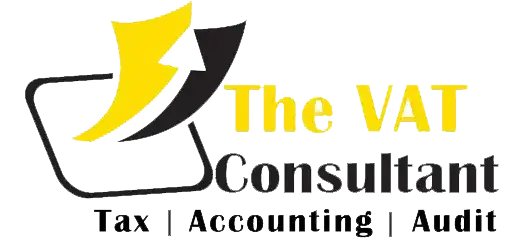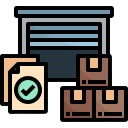VAT ON FREE ZONES IN UAE
Since the design of the GCC VAT framework, even when the UAE VAT law was issued, the issue of “VAT in Free Zones” has attracted the attention of most companies. These companies want to know how the existing tax-free zones are handled in the value-added tax, and what is the method of processing the value-added tax in and out of the free zone?
Before understanding the handling of value-added tax in the free zone, let us understand what is the UAE free zone?
What is the UAE Free Zone?
A free zone, also known as a free trade zone, is an area designed to promote international business in the UAE by providing 100% foreign corporate ownership. Duty-free zones provide attractive incentives, such as not requiring UAE nationals to be local partners/shareholders, exempting customs and taxes (such as corporate tax, personal income tax, all import and export taxes, etc.). Companies in the free zone must obtain the necessary permits from the respective free zone authorities and comply with their guidelines when operating in the area.
Each emirate in the UAE has a designated area as a free zone. There are more than 35 duty-free zones in the UAE, such as Jebel Ali duty-free zone, Dubai Internet City duty-free zone, Dubai Airport duty-free zone, etc.
Free trade zone under the value-added tax system
The first point that companies need to pay attention to is that “all tax-free zones” may not be “VAT-free zones.” This can be clearly seen from the definitions and regulations defined in the UAE VAT Law and Administrative Regulations. In the UAE’s VAT law, the VAT-free zone is called the “designated zone”, and administrative regulations stipulate the conditions that the designated zone must meet.
What is a designated area?
The designated area refers to an area designated by the Cabinet of Ministers that meets the conditions specified in the enforcement regulations. As far as VAT is concerned, designated areas will be considered outside the state, and any supplies between designated areas will not attract 5% VAT.
For example, a rose vendor located in the Jebel Ali Free Zone provided goods to a vendor in the A-One Free Zone of Dubai Airport.
Dubai Free Zone
In the above figure, it is assumed that Jebel Ali Free Zone and Dubai Airport Free Zone are designated areas. The cabinet will provide the actual list of designated areas after the decision. Since the goods supplied by rose traders to first-tier traders are supplied between designated areas, they will be exempt from VAT.
What are the conditions for the designated area?
The cabinet decided that the designated area should meet the following conditions in order to be considered outside the state and the country of implementation:
1. The designated area should be within a specific fenced geographic area
2. It should have security measures and customs control measures to monitor the entry and exit of individuals and goods entering and exiting the area.
3. It should have internal procedures for the preservation, storage and handling of goods in the designated area.
4. Operators in designated areas shall abide by the procedures prescribed by the Administration.
The above are the conditions that must be compulsory in the designated area. If there is any change in the way of doing business, or companies located in these areas no longer meet any of the conditions required to be designated as designated areas, they should be considered within the state and will be related to companies outside the designated areas.
List of designated areas in the UAE
UAE designated area
Khalifa Port Abu Dhabi Free Trade Zone
Abu Dhabi Airport Duty Free Zone
Khalifa Industrial Zone
Dubai Jebel Ali Free Zone (North and South)
Dubai Automobile and Auto Zone (DUCAMZ)
Dubai Textile City
Alquiz Free Zone
Access Free Zone
Dubai Air City
Dubai Airport Free Zone
Sharjah Hamria Free Zone
Sharjah Airport International Free Zone
Ajman Ajman Free Zone
Umm Al Quwain Umm Al Quwain Free Trade Zone in Ahmed bin Rashid Port
Umm Al Quwain Free Trade Zone on Sheikh Mohammed Bin Zayed Road (Sheikh Mohammed Bin Zayed Road)
Ras Al Khaimah RAK Free Trade Zone
RAK Maritime City Free Zone
RAK Airport Duty Free Zone
Fujairah Free Zone
FOIZ (Fujairah Petroleum Industrial Zone)
VAT DESIGNATED ZONE IN UAE
The designated area is the area designated by the Cabinet decision and meets the conditions stipulated by the UAE’s implementing regulations. In other words, the designated area is an area without value added tax, and for the purpose of value added tax, the area is considered to be outside the UAE state. Therefore, no value-added tax will be levied on any transfer of goods between designated areas
To learn more about free zone treatment in VAT and what is a designated zone and its conditions, please read VAT on Free Zone
In this article, we will discuss the handling of supplies manufactured “from” or “to” in a designated area. For ease of understanding, let us divide the consumables into the following situations.
Supply of goods from a designated area to another designated area.
Supply of goods to the Mainland from designated areas
Supply of goods from the Mainland to designated areas
Supply of goods from designated areas to overseas/Gulf Cooperation Council countries
Provide goods to designated areas from overseas/GCC countries
Provide services in designated areas
Other exceptional supplies, such as water, any form of energy, self-consumption of goods in designated areas, etc.
VAT processing of related products in designated areas
As mentioned above, for the purpose of value-added tax, the designated area is deemed to be outside of the UAE state, which means that no value-added tax will be levied. Although it is considered to be outside the country, not all supplies will enjoy this discount, and some supplies will still attract 5% VAT. The reason is that, under certain conditions, only the supply of goods is tax-free, and depending on the supply location, there is almost no tax on the type of supply manufactured from or supplied to the designated area. The following table details the VAT applicability for consumables manufactured from/to the designated area.
Taxable form of supply form
The designated area of goods is not taxable
Designated areas of Mainland goods* are subject to 5% VAT
Mainland goods * designated areas, should pay 5% value-added tax
Duty-free cargo in designated areas overseas/GCC countries
Overseas/Gulf Cooperation Council countries/regions designated areas for goods are non-taxable areas *The mainland here refers to the UAE outside the designated areas
As stated in the above table, any cargo transportation from a designated area to another area is not subject to tax only if the conditions mentioned in the UAE’s implementing regulations are met.
Conditions for the supply of VAT-free goods between designated areas.
Only when the following conditions are met, the consumables between the designated areas will not be subject to VAT:
1. Goods not released during the transfer process between designated areas
2. During the transfer between designated areas, the goods shall not be used or changed in any way.
3. The transfer of goods is carried out in accordance with the suspension of customs regulations in the Common Customs Law of the Gulf Cooperation Council.
In addition to the conditions that need to be met for providing free value-added tax between designated areas, the competent authority may require the owner of the goods to provide financial guarantees for tax payment, if the person may be liable and does not meet the conditions for the transportation of the goods.
VAT processing provided by related services in designated areas
The supply of goods and services between designated areas are treated differently. Although there is no tax on the supply of goods between designated areas, this is not the case when services are provided. The reason is that if the supply location is within the designated area, the service location is considered to be in the UAE. This means that regardless of whether it is provided from the mainland to the designated area or any service provided in the designated area, the standard value-added tax rate of 5% will be levied.
VAT processing for the supply of water or any form of energy to designated areas
Although water or all forms of energy supply are considered commodity supplies, these supplies are distinguished from other commodities in designated areas and are treated differently. If the water supply or any form of energy is located in the designated area, the water supply or any form of energy will be considered to be located in the state. This means that water and all forms of energy provided to designated areas will be subject to a 5% value-added tax in the same way as non-designated areas in the UAE.
Consumption of self-provided goods to designated areas
If the supply of goods manufactured in the designated area is used by the owner or a third party, the supply location will be in the UAE. This means that all self-use goods in the designated area will be subject to a 5% value-added tax. However, under certain special circumstances, the consumption of goods in the designated area is not subject to VAT. The following are exceptions:
The goods are merged into other goods,
The goods are attached to other goods,
The way the product is used makes it part of other products,
Goods are used to produce or sell another type of goods located in the same designated area.
Products that have not paid VAT in a designated area.
The consumption of goods located in the designated area where the owner has not paid the value-added tax will be regarded by the owner as imported into the state, and if it is not stated, the value-added tax shall be paid. However, if the owner consumes these goods in the above circumstances (self-consumption situation), there is no need to pay VAT.
List of designated areas in the UAE
UAE designated area
Khalifa Port Abu Dhabi Free Trade Zone
Abu Dhabi Airport Duty Free Zone
Khalifa Industrial Zone
Dubai Jebel Ali Free Zone (North and South)
Dubai Automobile and Auto Zone (DUCAMZ)
Dubai Textile City
Alcus Free Zone
Access Free Zone
Dubai Air City
Dubai Airport Free Zone
Sharjah Hamria Free Zone
Sharjah Airport International Free Zone
Ajman Ajman Free Zone
Umm Al Quwain Umm Al Quwain Free Trade Zone in Ahmed bin Rashid Port
Umm Al Quwain Free Trade Zone on Sheikh Mohammed Bin Zayed Road (Sheikh Mohammed Bin Zayed Road)
Ras Al Khaimah RAK Free Trade Zone
RAK Maritime City Free Zone
RAK Airport Duty Free Zone
Fujairah Free Zone
FOIZ (Fujairah Petroleum Industrial Zone)
In conclusion
Obviously, the VAT treatment of consumables related to the designated area differs depending on the consumable type. First, the benefits of exemption from value-added tax only apply to the supply of goods under certain circumstances, and the supply of services in the designated area is taxable. Secondly, in order to be eligible for duty-free concessions in the supply of goods within the designated area, the conditions set out in the UAE’s implementing regulations must be met. Therefore, it is very important for companies to understand the treatment of VAT on the supplies they perform, evaluate the impact of VAT on their business, and make corresponding plans.


























